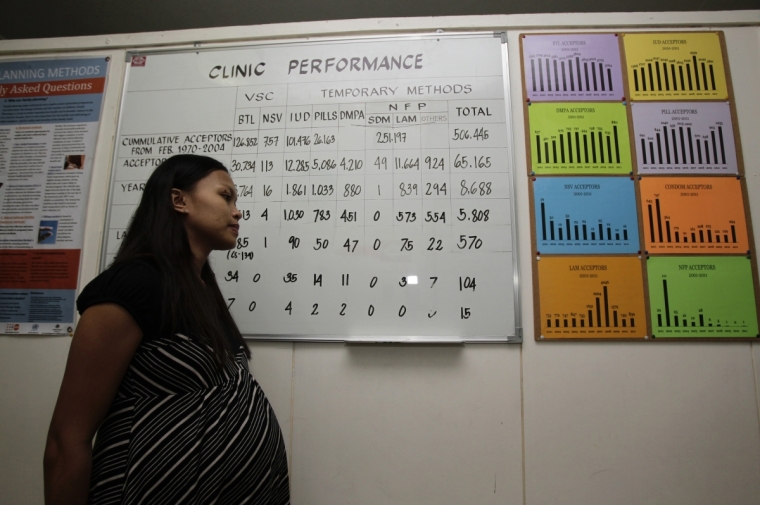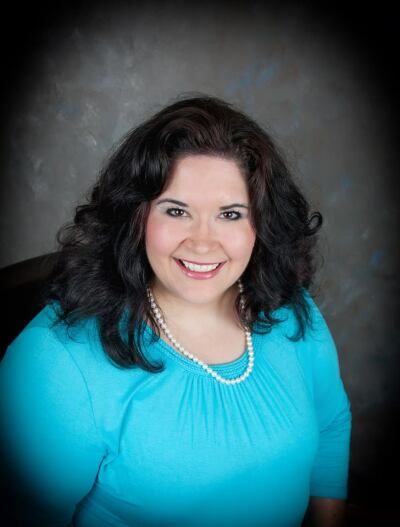'Black Lives Matter' more than race relations slogan, women's advocate says

MARYSVILLE, Ohio (Christian Examiner) -- "Black Lives Matter" recently became the herald cry of those who wanted to be sure that Michael Brown and Eric Garner were not forgotten or pushed aside as just more black men killed during altercations with police. But for those in life-affirming ministries, "Black Lives Matter" means so much more than race relations and police interaction.
As the nation prepares to celebrate the Sancity of Human Life Sunday, January 18, and honor the memory of Martin Luther King Jr., Monday, January 19, there are alarming higher abortion rates for black women than their white counterparts (accounting for age, marital status, student status, etc.).

Black women comprise roughly 13 percent of the female population but obtain about 30 percent of all abortions according to the Guttmacher Institute. In New York (highest abortion rate in the nation), pregnant black teens choose abortion 67% of the time. Some have called the abortion rate in the black community a form of genocide. The numbers are compelling; approximately 16 million black babies have been aborted since Roe vs. Wade and Doe vs. Bolton were decided on January 22, 1973.
The "go-to" answers for the higher incidence of abortion in the black community usually revolve around absentee dads, the breakdown of marriage and the dependence on government assistance. Indeed, those are factors, but they mask difficult issues that have to do with the black community's understanding and desire for "rights," racism (both systemic and internalized), and stereotypes.
Carole Alexander, founder and executive director of The Next STEPP in St. Petersburg, Florida, has served abortion-vulnerable women in the black community for more than twenty years.
Alexander points to the impact of the Civil Rights Movement, which coincided with the 1973 abortion decision as key to understanding the issue.
"Even in the dark days of slavery and darker days of Jim Crow (darker because of the psychological trauma of being told you were free, but having little reality of freedom) Africans in America cherished their children as the hope of the future. Not until abortion was legalized in 1973 and sold to African Americans as a 'right' you deserve and a way to end poverty did the number of black deaths by abortion begin to skyrocket to these levels. Even our 'leaders' at that time, like Jesse Jackson, Malclolm X, and groups like the Black Panther Party tried to warn us that abortion would become a form of 'black genocide,'" Alexander observed.
The intersection of the Civil Rights Movement of the 1950's - 1960's (The Civil Rights Act was signed in 1965) and the 1973 abortion decisions was pivotal in the black community. As more blacks pursued economic equality, limiting family size through abortion became an acceptable choice. Abortion, so it seemed, offered a way to stay out of poverty and enable black women to pursue other opportunities like higher education or technical training.
In fact, Alexander points out: "As families began to become more concerned with economic achievement, parity with the dominant culture, the belief that education and economic success, which were sold as the way out of poverty and second class citizenship, any threat to those attainments, such as an unplanned pregnancy, should be eliminated. So, with the legalization of abortion and the belief by some that having children or too many children (even married black women have abortion at higher rates than do white women) was a hindrance to achieving success, abortion was seen and sold as positive. "
The answers are complex; as complex as each individual's situation and background -- and much wisdom is needed.
The Apostle Paul exhorted young Timothy that "the LORD's bondservant must not be quarrelsome, but be kind to all" (II Timothy 2:24). Serving women of any race who are facing an unplanned or unwanted pregnancy is an intensely personal work.
There are practical ways to help women in a difficult pregnancy (food, clothing, shelter, and parenting education) and these are necessary and good. The multifaceted reasons for choosing abortion, however, tell us that we must go further. We must address the heart of the woman who believes this baby may just be a kind of "death sentence" for her own life.
What is a biblical response to women facing an abortion decision? Two truths stand in sharp contrast to the false messages of our culture.
First we must bring the Gospel to bear in the midst of confusing and conflicting choices. We are "under obligation" to share with each one the hope we have in Christ. This is not the time for the "cold call" evangelism many of us learned. We must listen to our friend; listen for her fears, concerns, shame, regret and confusion. Second, we must affirm that each person (regardless of color or ability) is made in the image of God and created to glorify Him. We need to show women honor and help them understand the dignity and honor which rightly belongs to the child growing in their wombs.
In his letter to the Galatians, Paul advocates for the "oneness" of the new creation, those who are now in Christ Jesus. "But now that faith has come...For you are all sons of God through faith in Christ Jesus. For all of you who were baptized into Christ have clothed yourselves with Christ. There is neither Jew nor Greek, there is neither slave nor free man; for you are all one in Christ Jesus. And if you belong to Christ, then you are Abraham's descendants, heirs according to promise" (3:25-29 selected).
-- Kathleen Shanks is the executive director of the Pregnancy Care Center of Union County in Marysville, Ohio. She is the former longtime director of sanctity of human life for the Florida Baptist Children's Homes, headquartered in Lakeland, Florida – a cooperative program ministry of the Florida Baptist State Convention.